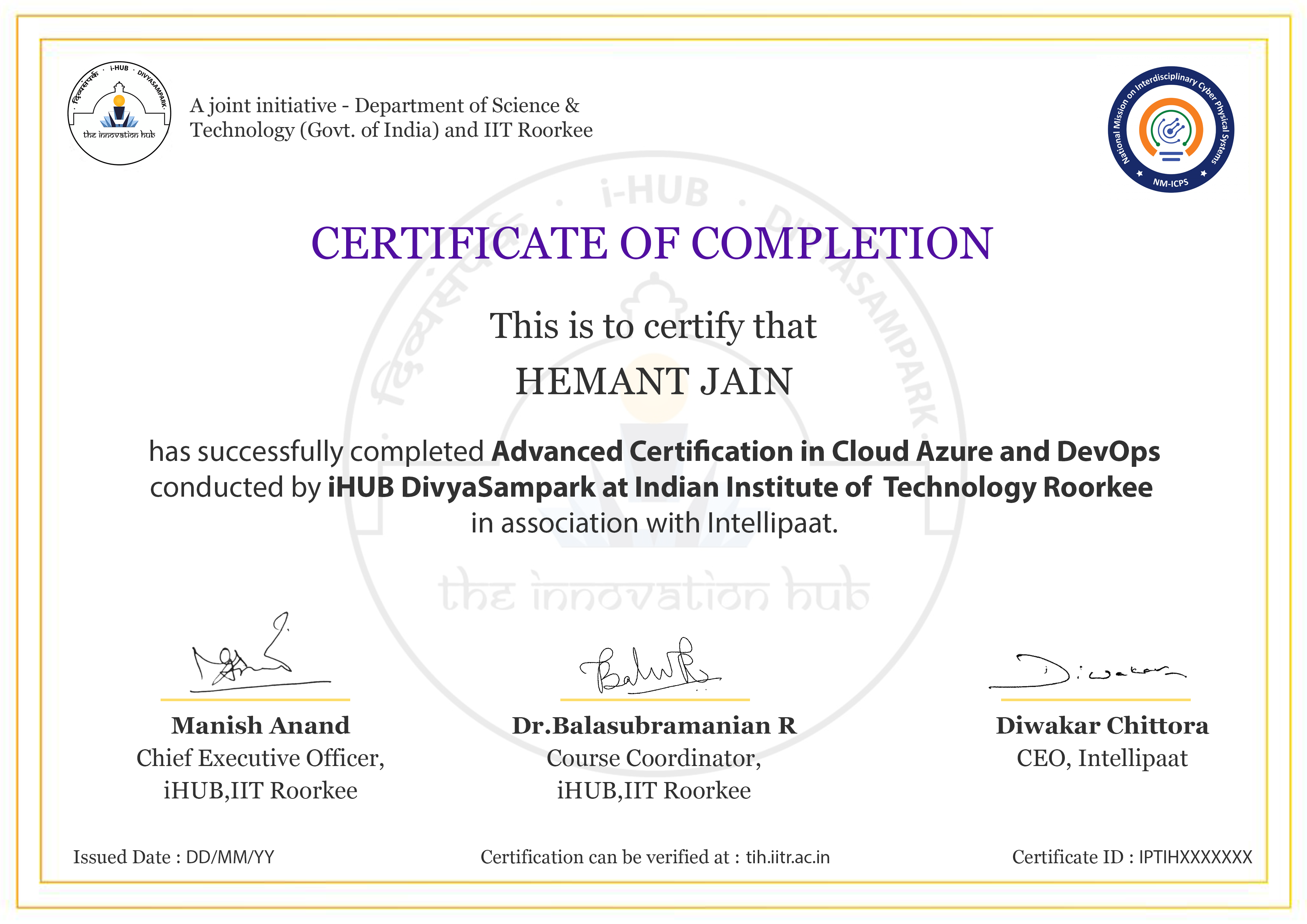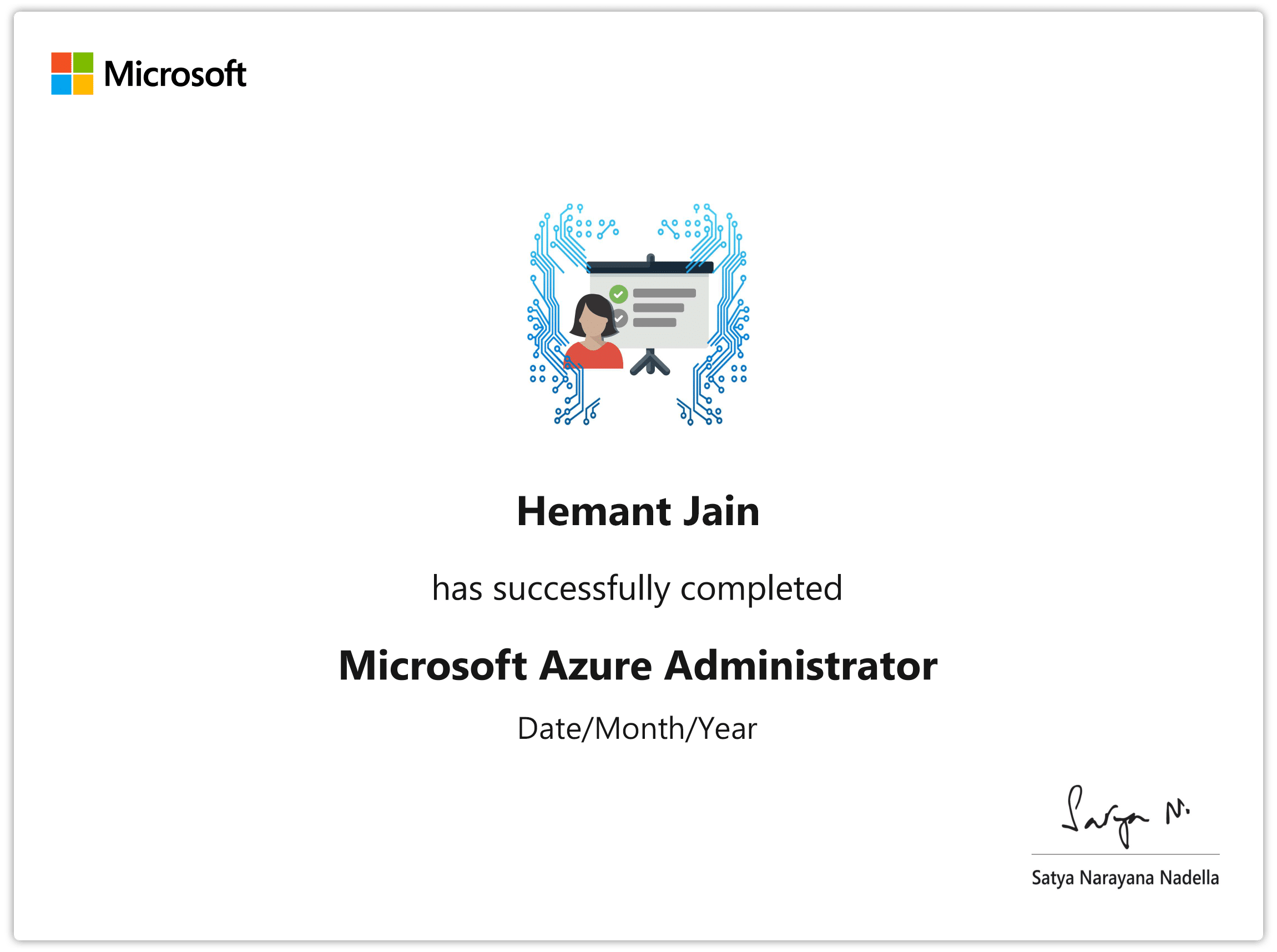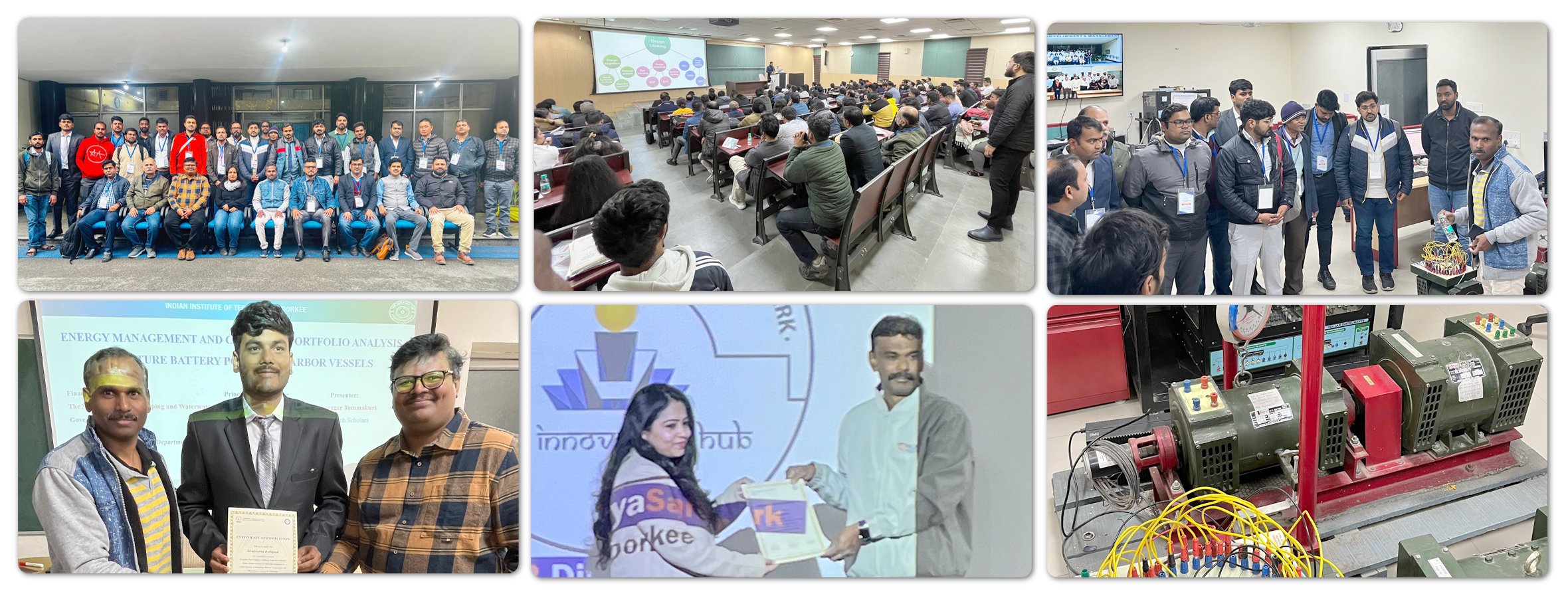Your cart is currently empty.







This program, in association with iHUB, IIT Roorkee aims to provide extensive training to offer technical expertise in deploying, managing, and monitoring cloud applications. The training helps you master skills on Microsoft Azure -104 & Azure 305, Azure on DevOps, AWS, etc. Learn from IIT faculty & industry experts to get hands-on exposure to these tools and upskill yourself.
Learning Format
Online
Live Classes
6 Months
Campus Immersion
at iHUB, IIT Roorkee
iHub - IIT Roorkee
Certification
EMI Starts
at ₹5900/month*
Our Cloud and DevOps course delivers in-depth Azure training, along with a broader focus on Cloud and DevOps tools. You will work on real-world projects in these emerging technologies under the guidance of the IIT faculty.
Partnering with iHUB, IIT Roorkee
iHUB DivyaSampark at IIT Roorkee, established under the National Mission on Interdisciplinary Cyber-Physical Systems (NM-ICPS) by the Department of Science and Technology (DST), focuses on fostering innovation in advanced technologies such as AI, ML, and more. The hub plays a pivotal role in technology development, incubation, and startups, particularly in areas like Healthcare,Read More..
Upon the completion of this program, you will:
Program in Collaboration with Microsoft
Benefits for students from Microsoft:
59% Average Salary Hike
40 LPA Highest Salary
700+ Career Transitions
400+ Hiring Partners
Career Transition Handbook
*Past record is no guarantee of future job prospects
Uses VPC, Lambda, Route 53, AWS ECS, Elastic Load Balancing, and other significant tools and technologies of AWS.
Creates designs and builds documents for setting best standards and practices for cloud adoption.
Plans project deliverables and ensures high quality of products and their respective criteria as per the users.
Records aspects of infrastructure as code using a range of tools like AWS CDK, Terraform, and CloudFormation.
Responsible for the overall development pipeline, individual releases, overall release schedules, and coordination with different teams.
The Product Manager is from the operations side of DevOps and is an expert in organization and management.
Skills to Master
Python
DevOps Tools
Linux
Agile
Amazon EC2
Git
Docker
Tools to Master
Linux Administration Fundamentals
Python
Self Paced
Parallel Computing:
Distributed Computing:
The projects will be a part of your certification in Cloud Computing and DevOps to consolidate your learning. Industry-based projects will ensure that you gain real-world experience before starting your career in Cloud Computing.
Practice 100+ Essential Tools
Designed by Industry Experts
Get Real-world Experience

Admission Details
The application process consists of three simple steps. An offer of admission will be made to selected candidates based on the feedback from the interview panel. The selected candidates will be notified over email and phone, and they can block their seats through the payment of the admission fee.
Submit Application
Tell us a bit about yourself and why you want to join this program
Application Review
An admission panel will shortlist candidates based on their application
Admission
Selected candidates will be notified within 1–2 weeks
Total Admission Fee
EMI Starts at
We partnered with financing companies to provide very competitive finance options at 0% interest rate
Financing Partners
![]()
Admissions close once the required number of students is enrolled for the upcoming cohort. Apply early to secure your seat.
| Date | Time | Batch Type | |
|---|---|---|---|
| Program Induction | 7th March 2026 | 08:00 PM - 11:00 PM IST | Weekend (Sat-Sun) |
The program covers a comprehensive range of topics related to Azure DevOps Solutions, and the duration is for 6 months. The course includes many live sessions led by instructors to help you learn.
Intellipaat offers career services, ensuring interviews for all course enrollees. And please note that iHUB, IIT Roorkee is not accountable for these services.
Once you provide your basic details for the program, a course advisor will contact you. Following your discussion with them, your application will undergo screening. If your application is selected, you’ll be required to complete a detailed application form and participate in a telephonic interview conducted by a subject matter expert. Upon assessment of your profile and interview, successful candidates will receive an admission offer letter.
The duration of this program is 6 months, during which you’ll attend live classes and work on assignments and projects.
If, by any circumstance, if you’ve missed the live class, you will be given with a recording of the class you missed within the next 12 hours. Additionally, if you require assistance, you can access to 24*7 technical support from us for resolving queries and receiving help.
To finish this program, you’ll need to dedicate approximately 6 hours per week to learning. Classes will take place on weekends (Saturday/Sunday), with each session lasting for 3 hours.
To ensure you make the most of this program, you will be given industry-level projects to work on. This hands-on approach ensures a comprehensive understanding of the program material.
Upon completion of this program, you will be eligible to first prepare using mock interviews and resume preparation followed by min. 3 exclusive interviews with 400+ hiring partners across the globe.
Upon completion of all of the requirements of the program, you will be awarded a certificate from iHUB, IIT Roorkee.
There will be a 2-day campus immersion module at iHUB, IIT Roorkee during which learners will visit the campus. You will learn from the faculty as well as interact with your peers. However, this is subject to COVID-19 situation and guidelines provided by the Institute. Learners are responsible for covering the expenses related to travel and accommodation. Also, note that participation in the campus immersion module is optional.
To be eligible for getting into the placement pool, the learner has to complete the course along with the submission of all projects and assignments. After this, learners has to clear the PRT (Placement Readiness Test) to get into the placement pool and get access to our job portal as well as the career mentoring sessions.
You will undergo the below sessions:
Please note that the course fees are non-refundable. Rest assured, we are here to support you every step of the way in your upskilling and professional growth journey.
Due to any reason you want to defer the batch or restart the classes in a new batch then you need to send the batch defer request on [email protected] and only 1 time batch defer request is allowed without any additional cost.
Learner can request for batch deferral to any of the cohorts starting in the next 3-6 months from the start date of the initial batch in which the student was originally enrolled for. Batch deferral requests are accepted only once but you should not have completed more than 20% of the program. If you want to defer the batch 2nd time then you need to pay batch defer fees which is equal to 10% of the total course fees paid for the program + Taxes.
Yes, Intellipaat certification is highly recognized in the industry. Our alumni work in more than 10,000 corporations and startups, which is a testament that our programs are industry-aligned and well-recognized. Additionally, the Intellipaat program is in partnership with the National Skill Development Corporation (NSDC), which further validates its credibility. Learners will get an NSDC certificate along with Intellipaat certificate for the programs they enroll in.
All candidates applying for this course are eligible for equity-based seed funding and incubation support from iHUB DivyaSampark, IIT Roorkee, for their startup ideas. Enrolled students will have the opportunity to pitch their ideas to the iHUB DivyaSampark team, and shortlisted proposals may receive funding of up to ₹50 lakh, along with full incubation support.
Additionally, candidates who are currently enrolled in a degree program and have their startup idea approved may also receive a monthly fellowship/scholarship of ₹8,000 during the early phase of their project to encourage and support innovation.
What is included in this course?
 Click to Zoom
Click to Zoom
 Click to Zoom
Click to Zoom
























